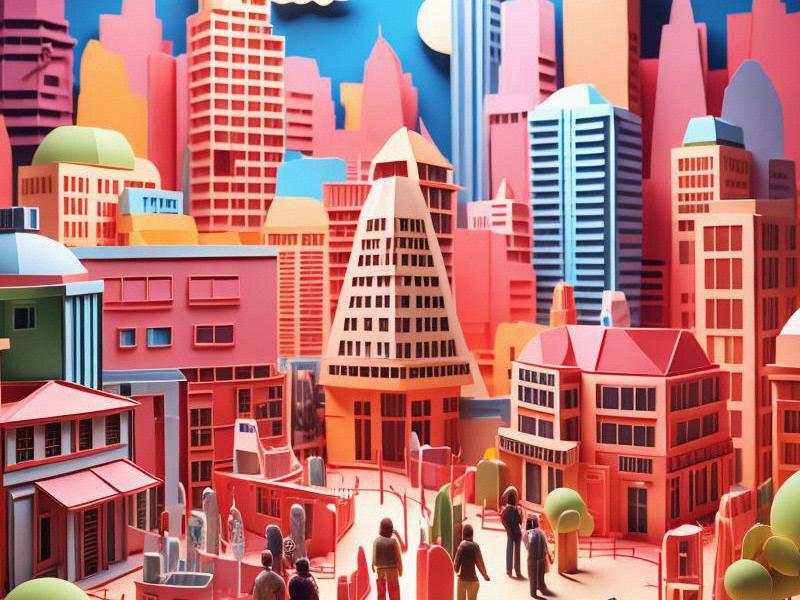
In recent years, Shanghai has witnessed a significant transformation in its recreational landscape. The city, known for its rapid economic growth and modern infrastructure, is now also celebrated for its vibrant recreational clubs that cater to a variety of interests and lifestyles. These clubs have become hubs for leisure, socializing, and personal development, reflecting the changing dynamics of urban living.
One of the key factors driving the popularity of recreational clubs in Shanghai is the increasing demand for diverse leisure options. As the city's population grows and becomes more affluent, residents are seeking out new ways to relax, unwind, and connect with others. Recreational clubs offer a solution by providing a wide array of activities, from fitness and wellness programs to cultural events and social gatherings.
Fitness and Wellness Centers
Shanghai's recreational clubs are home to numerous fitness and wellness centers that cater to individuals looking to maintain a healthy lifestyle. These centers often feature state-of-the-art equipment, professional trainers, and a variety of fitness classes such as yoga, Pilates, and high-intensity interval training (HIIT). Many clubs also offer spa services, including massages, facials, and body treatments, allowing members to pamper themselves after a workout.
Cultural and Artistic Pursuits
In addition to fitness, Shanghai's recreational clubs provide opportunities for cultural and artistic exploration. Some clubs host art exhibitions, music recitals, and theater performances, giving members a chance to immerse themselves in the arts. Others offer cooking classes, wine tasting sessions, and language learning programs, promoting a well-rounded and enriching lifestyle.
爱上海同城419 Socializing and Networking
Recreational clubs in Shanghai also serve as social hubs where people can meet new friends, network, and build professional connections. Many clubs organize social events, such as themed parties, game nights, and community service activities, fostering a sense of belonging and camaraderie among members. These gatherings provide a platform for individuals to expand their social circles and engage in meaningful interactions.
Golf and Country Clubs
For those seeking a more traditional and exclusive recreational experience, Shanghai offers several golf and country clubs. These clubs provide access to beautifully landscaped golf courses, tennis courts, and equestrian facilities, attracting members who appreciate a sophisticated and tranquil environment. Golf and country clubs often host tournaments and social events, further enhancing their appeal.
Impact on Urban Lifestyle
The rise of recreational clubs in Shanghai has had a profound impact on the city's urban lifestyle. These clubs have become integral to the daily lives of many residents, offering a much-needed escape from the fast-paced and often stressful urban environment. By providing a space for relaxation, personal growth, and socialization, recreational clubs contribute to the overall well-being and quality of life in Shanghai.
上海龙凤阿拉后花园 Moreover, the presence of recreational clubs reflects the city's commitment to creating a balanced and sustainable urban environment. By promoting healthy lifestyles, cultural enrichment, and social interaction, these clubs play a vital role in fostering a sense of community and enhancing the city's livability.
Challenges and Opportunities
Despite their growing popularity, Shanghai's recreational clubs face several challenges. One of the main issues is the high cost of membership, which can be prohibitive for some residents. Additionally, the increasing competition among clubs has led to a need for continuous innovation and improvement in services and facilities.
However, these challenges also present opportunities for growth and development. By addressing the needs and preferences of their members, recreational clubs can differentiate themselves and attract a wider customer base. For example, offering flexible membership plans, introducing new and exciting activities, and leveraging technology to enhance the member experience are all strategies that can help clubs stay relevant and competitive.
The Role of Technology
Technology is playing an increasingly important role in the recreational club industry in Shanghai. Many clubs are adopting digital tools and platforms to streamline operations, improve member engagement, and provide personalized services. For instance, mobile apps can be used for booking classes, accessing fitness data, and communicating with staff members. Virtual reality (VR) and augmented reality (AR) technologies are also being explored to crteeaimmersive experiences for members.
419上海龙凤网 Sustainability and Environmental Awareness
As sustainability becomes a global concern, Shanghai's recreational clubs are also taking steps to reduce their environmental footprint. Many clubs are implementing energy-efficient practices, using renewable energy sources, and promoting waste reduction and recycling. Additionally, some clubs are incorporating eco-friendly design elements into their facilities, creating a more sustainable and appealing environment for members.
Community Engagement
Recreational clubs in Shanghai are increasingly engaging with the local community through various initiatives and programs. By partnering with schools, non-profit organizations, and other community groups, clubs can contribute to the social and economic development of the city. For example, offering scholarships for underprivileged youth, organizing charity events, and supporting local businesses are all ways in which clubs can make a positive impact on the community.
Future Outlook
The future of recreational clubs in Shanghai looks promising, with continued growth and innovation expected in the coming years. As the city's population continues to expand and diversify, the demand for recreational activities and social opportunities will only increase. Recreational clubs that adapt to changing trends and meet the evolving needs of their members will be well-positioned for success.
In conclusion, Shanghai's recreational clubs are an integral part of the city's urban lifestyle, offering a wide range of activities and fostering new forms of socialization. By addressing challenges, embracing technology, prioritizing sustainability, and engaging with the community, these clubs can continue to thrive and contribute to the overall well-being of Shanghai's residents.
